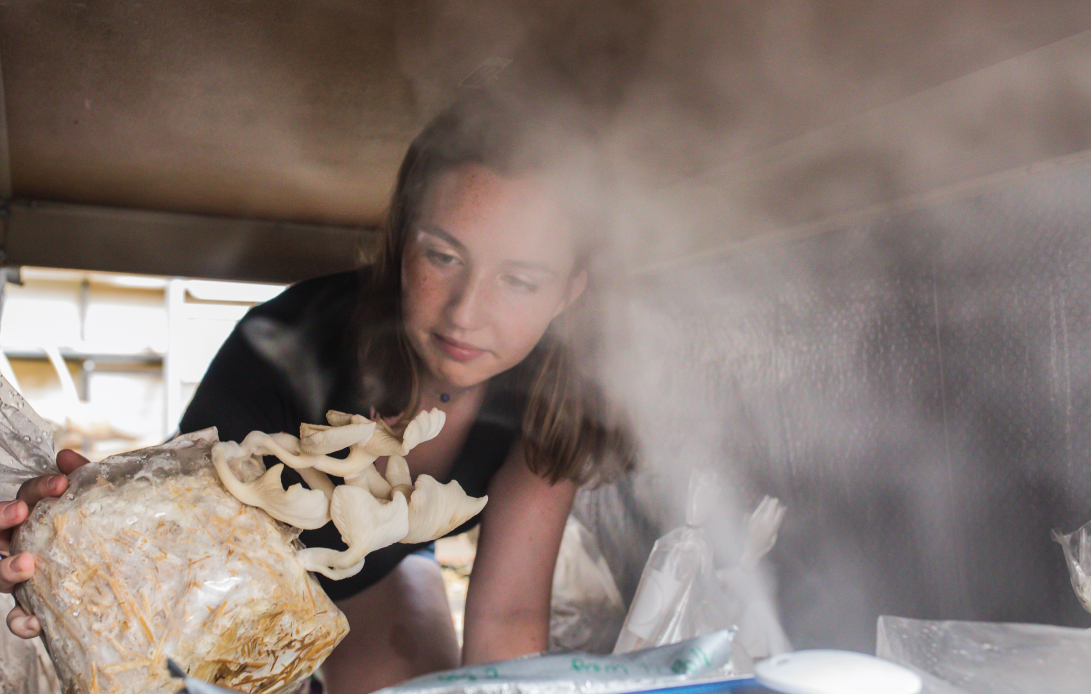
Belle Sullivan, Environmental Engineering:
"We’re trying to address the 'hunger months' in Sierra Leone by building mushroom production houses for farmers. They grow rice, but it doesn’t grow year-round. Mushrooms can be grown throughout the year off waste products farmers have in abundance, like rice straw.
To get ready for our fieldwork in Sierra Leone, we spent the summer on campus experimenting with materials and temperature and humidity. We wanted to get comfortable with the process of growing mushrooms, which is surprisingly hard. But we definitely made some progress.
I grew up doing a lot of nonprofit mission work, and I thought maybe I'd eventually end up working with Engineers Without Borders orthe United Nations or something. But the Global Social Impact Fellowship has changed my perspective on what's the best way to help people. I’ve learned that while the nonprofit approach might solve the immediate problem, it may not solve the long-term problem if donor fatigue affects how much money you're able to raise.
We're about building sustainable businesses, and I've learned that making money isn't a bad thing. It's a good thing. It allows your business to keep going. Initially I thought I wouldn't like having to sit through lectures on subjects like economic viability. I'm very STEM, and a lot more interested in engineering. But those lectures taught me a lot, and contributed to changing my perspective. You just can't just ignore the economics of something. My definition of doing good has changed. To me, doing good is about making a sustained impact.
I think opportunities like the GSIF are where education in general is heading. You get so much more out of doing things hands-on. There’s only so much you can learn from a book."
